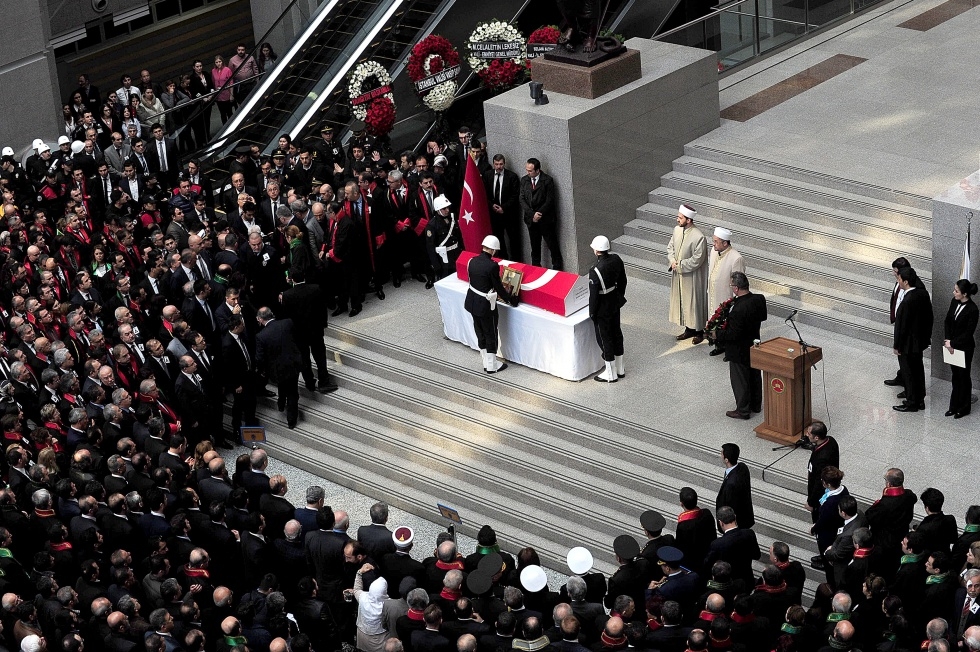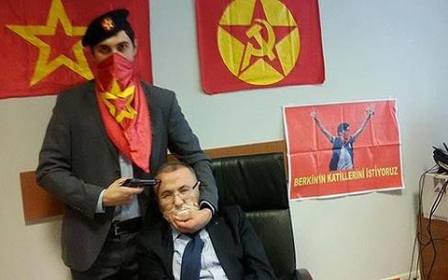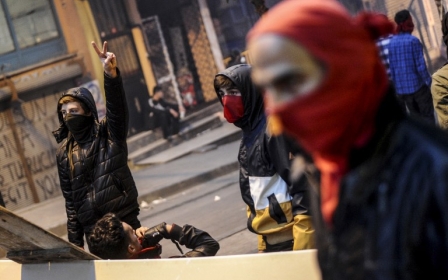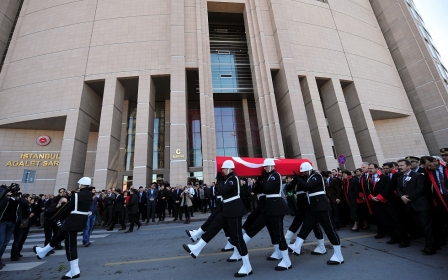Turkey lifts ban on social media sites after they remove photos

Turkey blocked access to social media sites Facebook, Twitter and YouTube on Monday, over the publication of photographs of the Turkish prosecutor held at gunpoint by leftist militants before he was killed in a shootout last week.
The online sites were inaccessible for many users in Turkey, with the Hurriyet newspaper saying that service providers received an order from prosecutors to block those three internet giants as well as other websites.
The authorities set a deadline of four hours for Twitter, Facebook and YouTube to remove the offending content.
Facebook was initially the only one to comply with the deadline and access to the social network was restored accordingly, Tayfur Acarer, head of country's telecommunications authority (TIB), told Hurriyet.
The ban on Twitter was also lifted later after it also gave in to Turkey's demand, said Bulent Kentles, the secretary general of the union of internet service providers (BSE).
However a Twitter source, who did not confirm that the social media platform had complied with Turkey's demand, said the company planned to appeal the Turkish court order.
Discussions with YouTube were ongoing, Hurriyet quoted Kentles as saying.
YouTube.com ran the text of a court ruling on its site saying an "administration measure" had been implemented by TIB.
166 websites blocked
Hurriyet said the order blocked a total of 166 websites which published the images, including Facebook, Twitter and YouTube.
Publication of any material related to the hostage standoff amounted to "terrorist propaganda" inciting people to "hatred and violence" and disturbing the public order, the court ruling read.
The ban was widely circumvented as well as mocked by many of Turkey's almost 12 million Twitter users, with one user named @BinaShah writing: "Come to Turkey and disconnect (possible new tourism slogan)."
The hashtag #TwitterisblockedinTurkey quickly made it to Twitter's top world trending topics.
Prosecutor Mehmet Selim Kiraz and his two captors linked to the Marxist Revolutionary People's Liberation Party–Front (DHKP-C) were killed after a shootout at a courthouse in Istanbul last Tuesday.
Kiraz had been overseeing the case of Berkin Elvan, 15, who was critically injured during 2013’s anti-government Gezi Park protests and died after almost nine months in a coma. Kiraz was the fifth prosecutor to be assigned to the case in less than two years.
Public indignation over Elvan’s death is rooted in what critics say is official indifference and failure by the authorities to identify and hold accountable the policeman who fired the tear gas canister that hit Elvan on the head.
Last Friday, an Istanbul court ruled that the publication of any material related to the hostage standoff incited people to “hatred and violence” and disturbing the public order.
A senior Turkish official told Reuters that Kiraz’s family were distressed regarding the widespread share of the images.
“The wife and children of prosecutor Kiraz have been deeply upset,” the senior official said. “The images are everywhere.”
The DHKP-C had published pictures showing one of the militants - his face concealed by a scarf with the group's red and yellow insignia - holding a gun to the hostage's head in the prosecutor's offices.
The images were circulated on social media while the siege was going on and were published by several Turkish newspapers as well as news websites.
A day after the standoff, Turkish prosecutors launched a probe into four newspapers for disseminating "terrorist propaganda" after they published the controversial images.
No such freedom anywhere in the world
Turkey's presidential spokesman Ibrahim Kalin said on Monday that the bans were "to do with the publishing of the prosecutor's picture", describing it as "unacceptable".
"What happened in the aftermath is as sad as the incident itself ... There is no such freedom anywhere in the world," he told a news conference in Ankara.
European Parliament member Marietje Schaake of the Netherlands took to Twitter to condemn the ban as "another disproportionate response restricting press freedom".
Prime Minister Ahmet Davutoglu had caused controversy after he revealed he had personally denied accreditation to the funeral of Kiraz for media organisations who had used the image of the captive prosecutor.
"Freedom of the press is as important as mourning and respect. Freedom of the press is as important as not playing into the hands of terrorist propaganda," Davutoglu said.
President Recep Tayyip Erdogan and the ruling Justice and Development Party (AKP) have been repeatedly criticised for using court orders to block critical websites, topping a Google table for content removal requests.
Last year the search engine also accused Turkey of intercepting its Internet domain, redirecting users to other sites.
The government blocked Twitter and YouTube in March 2014 after they were used to spread a torrent of audio recordings implicating Erdogan - then premier - and his inner circle in an alleged corruption scandal.
Turkey's parliament last month approved legislation to tighten the government's control over the internet by allowing it to block websites without prior judicial authorisation, sparking outrage both at home and abroad.
Erdogan has also made no secret of his disdain for social networks, comparing them to a "murderer's knife" and once famously vowing to "eradicate" Twitter.
New MEE newsletter: Jerusalem Dispatch
Sign up to get the latest insights and analysis on Israel-Palestine, alongside Turkey Unpacked and other MEE newsletters
Middle East Eye delivers independent and unrivalled coverage and analysis of the Middle East, North Africa and beyond. To learn more about republishing this content and the associated fees, please fill out this form. More about MEE can be found here.




